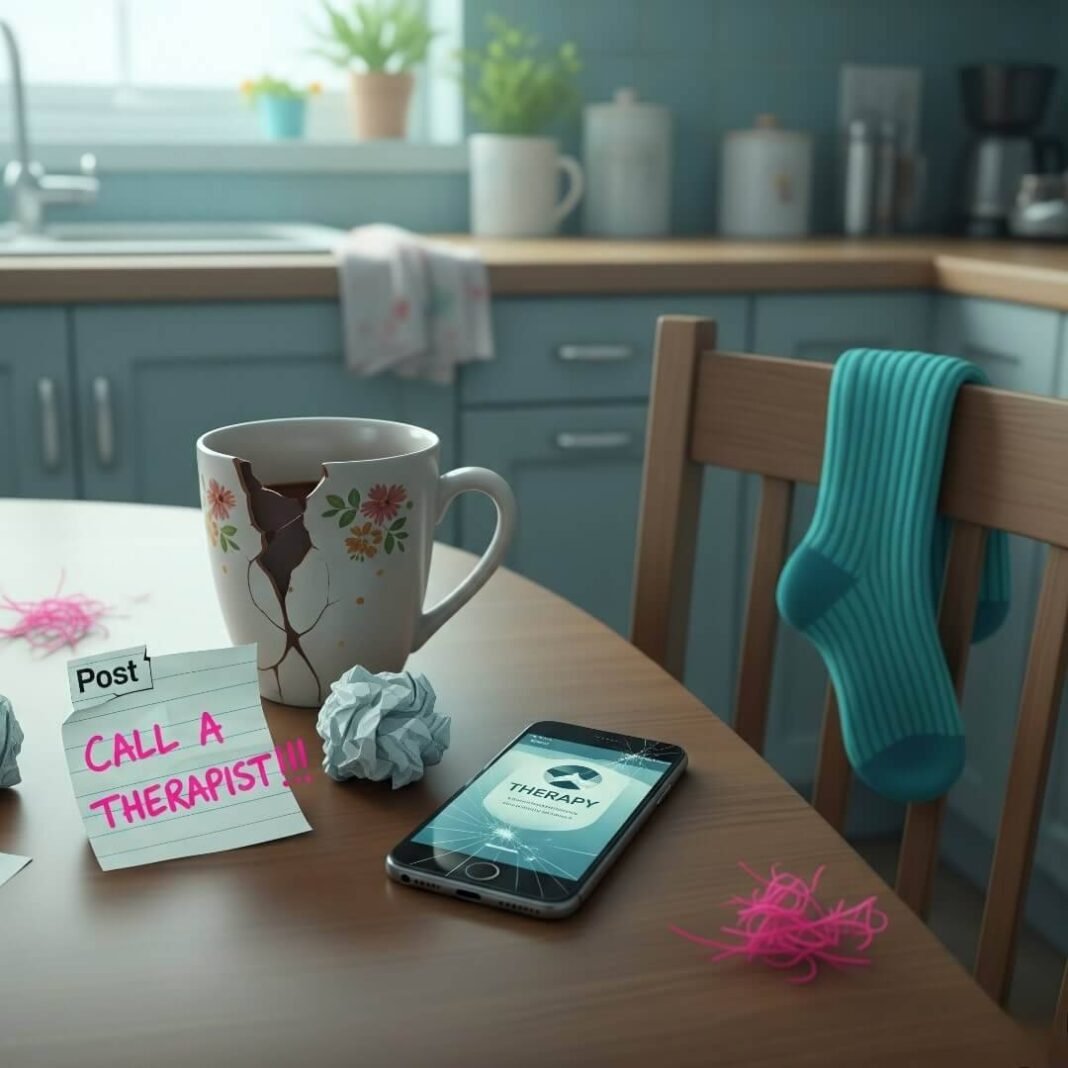Navigating mental health services is like trying to find your car in a packed Walmart parking lot at midnight—confusing, a bit stressful, and you’re not sure if you’re even in the right row. I’m sitting here in my tiny Columbus, Ohio, apartment, surrounded by empty Diet Coke cans and a cat who’s giving me serious side-eye Navigating Mental Health Services. My kitchen table’s a mess: a chipped mug, a sticky note yelling “Call therapist!!” that I wrote last Tuesday, and my phone, which is one crack away from giving up. I’ve been down this road before, y’all, and it’s a lot. But it’s doable. So, grab a snack or something, and let’s talk about finding mental health support without totally losing your marbles.
Why Navigating Mental Health Services Feels Like Herding Cats
So, picture me in 2021, having a full-on meltdown at 2 a.m. I’m Googling “therapists near me” on my phone, the screen so bright it’s practically burning my eyeballs. I’m scrolling through these profiles, and they all look like they’re trying to sell me car insurance or something. I was so overwhelmed I almost just watched Parks and Rec for the 17th time instead. You ever feel like that? Finding mental health support isn’t like picking a new show to binge—it’s personal, it’s messy, and sometimes you gotta kiss a few frogs before you find the right fit.
Here’s what I figured out after some major flops:
- It ain’t one-size-fits-all. What works for your coworker might make you wanna yeet yourself out a window.
- You can shop around. I saw three therapists before I found one who didn’t make me feel like I was reading my diary to a stranger. One kept saying “I hear you” like a robot—ugh.
- It’s okay to be clueless. Like, who actually knows what “sliding scale” means without looking it up? I sure didn’t.

Step One: Figuring Out What You Need (Yeah, It’s Annoying)
Before you start hunting for mental health resources, you gotta do some soul-searching. I know, it sounds like something your high school guidance counselor would say. But for real. Back in 2020, I was working a retail job that made me wanna scream into a pillow—y’know, the kind where you’re smiling while a customer yells about a $2 coupon. I thought I just needed to rant, but turns out, I was hauling around some old baggage from like, forever ago Navigating Mental Health Services. So I had to get real: Was I looking for quick tips to chill out or a deep dive into why I panic-buy houseplants?
Here’s how I sorted it:
- What’s your deal? Anxiety? Depression? Or just feeling like life’s a total dumpster fire? I cry at cat food ads, so I knew I needed help with, like, emotions.
- What’s your vibe? Want someone super warm or more like, “Get to the point”? I had a therapist once who was so chill I thought she was napping.
- Money stuff. Therapy can cost more than my Netflix subscription. More on budget stuff later.
I figure this out by wandering around. There’s this park near my place with a path where I can just walk and think. I’ll stare at the ducks fighting over bread crumbs and try to make sense of my head. You got a spot like that?
Step Two: Where to Look for Mental Health Support (Google’s Not the Boss)
Okay, so you kinda know what you need. Now where do you find it? When I started, I felt like I was auditioning for a role in Therapist Idol or something. My first stop was Psychology Today—it’s like Tinder for therapists, with filters and all. I found my current therapist, Jen, there, and she’s awesome. She doesn’t laugh at my dumb puns, but she smirks, which is close enough.
Other places to check:
- Your insurance. Their website usually has a list of in-network folks, but it’s a pain to navigate. I called mine once and got stuck on hold listening to elevator music—kill me.
- Community centers. These are clutch for cheap or free options. I found a place in Columbus with a free anxiety group, and it was like, “Oh, other people are this freaked out too?”
- Apps like BetterHelp. I tried it for a bit. Super convenient, but I missed seeing someone IRL. Good if you’re in the middle of nowhere, though.
- Ask your people. My friend Mike swore by his counselor, and it gave me the push to try again.
Oh, and NAMI is a lifesaver. They’ve got all kinds of resources for finding local mental health services, plus hotlines if you’re in a bad spot. Bookmarked that one for sure.

Step Three: Picking a Therapist (And Dodging the Weirdos)
Choosing a counselor is like picking a coffee shop—you gotta feel it. My first therapist was sweet but kept telling me to journal, and I’m like, “I can barely remember to water my plants.” The second one was so serious I felt like I was in detention. By the third, I had a game plan. Here’s my not-so-perfect checklist for finding a therapist:
- Do they get you? In the first session (usually free), see if they actually listen or just nod like a bobblehead. Jen asked about my cat, and I was like, “We’re friends now.”
- Specialty stuff. Trauma? Look for EMDR or trauma-focused peeps. Anxiety? CBT’s my jam—it’s like debugging your brain.
- Vibes check. If they feel like your dentist, bounce. I had one who made me feel like I was failing at therapy. Nope.
- The boring stuff. Virtual or in-person? In-network? Affordable? I found a sliding scale therapist who charged $35 a session—huge win.

Step Four: What If It’s a Bust? (You’re Not Stuck Forever)
Here’s where I messed up big time. I stayed with a therapist for seven months because I felt bad dumping her. She was nice, but I’d leave sessions feeling like I’d just read her my grocery list. I finally sent a super awkward email—probably had typos, definitely rambled—and bailed. And you know what? It was fine. Therapists don’t cry into their tea when you leave.
If it’s not working:
- Just say it. Tell them it’s not a fit. You don’t need to write a novel.
- Ask for recs. They might know someone who’s better for you.
- Don’t quit. It took me three tries to find Jen, and she’s helped me untangle stuff I didn’t even know was there.
When You’re Broke but Need Mental Health Support
Therapy’s expensive, y’all. When I was scraping by on my coffee shop gig, I couldn’t drop $100 a session. But there’s hope:
- Sliding scale. Some therapists charge based on what you make. Mine went down to $35, which was a game-changer.
- Community centers. They’ve got low-cost or free counseling. My county’s website listed some—check yours.
- Apps. BetterHelp and Talkspace are cheaper than in-person, but read the fine print. I got a free trial once and forgot to cancel—oops.
- EAPs. If you’ve got a job, see if they offer free sessions. Mine gave me four, and it was enough to get me going.
Outbound Link :






























